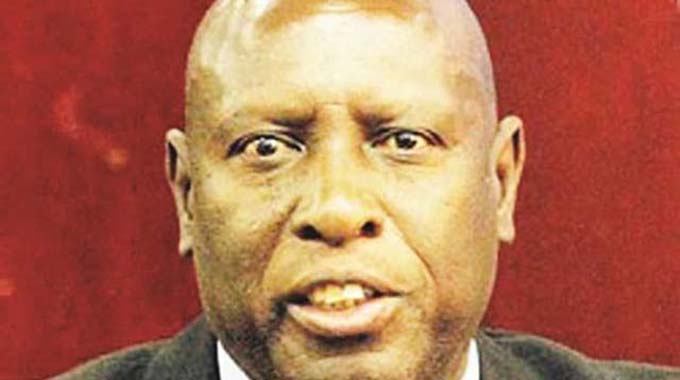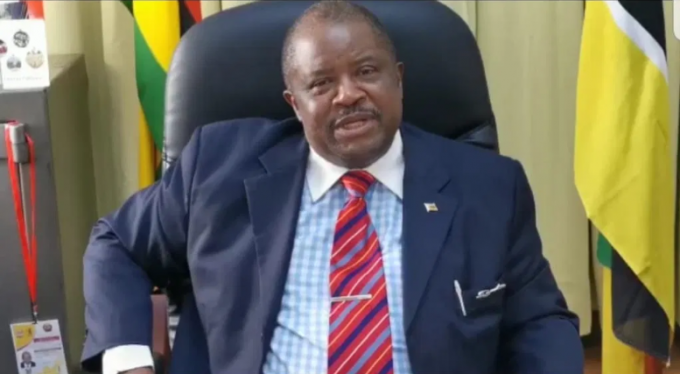Zim needs disability Covid-19 response

Lovemore Rambiyawo Correspondent
The Covid-19 pandemic, which global partners have described as “the defining global health crisis of our time and the greatest challenge we have faced since World War Two”, has once again brought into focus the need for a disability inclusive esponse in Zimbabwe.
There is convergence among global stakeholders on the need for extra measures to be adopted to ensure a disability inclusive Covid-19 response.
The World Health Organisation (WHO) recognises that PWDs may be impacted more significantly by Covid-19, while the International Disability Alliance has come up with recommendations for a disability inclusive Covid-19 response.
While Zimbabwe has made a stab at ensuring a disability inclusive Covid-19 response through provision of information updates in accessible formats for the benefit of deaf and visually impaired persons in Zimbabwe, it has yet to implement extra and comprehensive measures to ensure a disability inclusive Covid-19 response.
The provision of information in accessible formats was in response to a lawsuit against Zimbabwe Broadcasting Corporation (ZBC) by three disability organisations.
On 15 April, 2020, the Centre for Disability and Development, Deaf Zimbabwe Trust and Zimbabwe National League of the Blind instituted a lawsuit against ZBC.
The lawsuit by the three organisations representing people with visual and hearing impairments demanding that information on coronavirus in accessible formats be provided to people with visual and deaf persons was just the visible tip of the iceberg. It belies the social exclusion of PWDs across the entire health delivery service system in the country, an unprecedented social exclusion that has been brought into urgent focus by the capacity of Covid-19 to spread and kill exponentially, at a rate and intensity that has never been witnessed before.
As has been the case with all disease prevention and mitigation strategies, persons with disabilities (PWDs) again run the risk of falling through the cracks of the Covid-19 response process, unless urgent and measures are taken to ensure that our response is not homogeneous, but disability category specific, corresponding directly to the Covid-19 disability needs identified.
The IDA recommendations go beyond the ad hoc, piecemeal and reactive Covid-19 responses, but come up with holistic and integrated disability inclusive Covid-19 response that meet the needs of people with disabilities across the entire Covid-19 prevention, treatment, mitigation, care and support spectrum.
Its implementation by key stakeholders will create a Covid-19 free generation for all, including PWDs. The IDA contains 10 key recommendations with appropriate activities. In order to determine how disability inclusive our Covid-19 response is, it is necessary to analyse how all recommendations and their activities are being implemented in Zimbabwe.
Recommendation 1: PWDs must receive information about infection mitigating tips, public restriction plans, and the services offered, in a diversity of accessible formats. Under this recommendation, while Zimbabwe has national sign language on the main news, it has no captions, although there is captioned information on Covid-19 for deaf people.
There is no sign language interpretation on international news, which has a high content of Covid-19, and no captions; there is no high contrast nor is there information in large print for those with short sight.
Communication is not always in plain language; digital media platforms are not always accessible to people with visual impairments, there are no alternative phone lines for blind persons and email address for deaf and hard of hearing persons as a temporary option where communications are not yet accessible.
Appropriate alternatives for optimum access, such as interpreters wearing a transparent mask, so that facial expressions and lip movement is still visible, are not yet provided for. There are no alternatives such as FM systems where remote interpretation is inaccessible for everyone, including people with deaf-blindness especially when face masks make lip-reading impossible.
Recommendation 2: Additional protective measures must be taken for people with certain types of impairment. Priority has not been made to disinfection of entrance doors reserved for PWDs, handrails of ramps or staircases, accessibility knobs for doors reserved for people with reduced mobility in the Covid-19 response. No measures have been made towards introducing proactive testing and more strict preventive measures for groups of PWDs who are more susceptible to infection due to the respiratory or other health complications caused by their impairment.
Recommendation 3: Rapid awareness raising and training of personnel involved in the response are essential. Deficits under this recommendation is that Government officials and service providers, including emergency responders have not been trained on the rights of PWDs and on risks associated to respiratory complications for people who have specific impairments. Awareness raising on support to PWDs is not an integral part of all protection campaigns.
Recommendation 4: All preparedness and response plans must be inclusive of and accessible to women with disabilities. Currently, Covid-19 plans to support women are not inclusive of and accessible to women with disabilities. To cap it off, there are no standalone or inclusive programmes to support PWDs, which programmes should also include a gender perspective.
Recommendation 5: No disability-based institutionalisation and abandonment is acceptable. In the Covid-19 response, no measures have been taken to ensure that PWDs should not be institutionalised as a consequence of quarantine procedures beyond the minimum necessary to overcome the sickness stage and on an equal basis with others.
No strategies have also been put in place to ensure that any disruptions in social services should have the least impact possible on PWDs and should not entail abandonment nor have steps been taken to ensure that support family and social networks, in case of being quarantined, should be replaced by other networks or services.
Recommendation 6: During quarantine, support services, personal assistance, physical and communication accessibility must be ensured. The current scenario shows that no deliberate steps have been taken to ensure that PWDs in lockdown enjoy access to interpretation and support services, either through externally provided services or through their family and social network. Sign language interpreters in Zimbabwe are externally provided, and did not accompany deaf people in lockdown to provide essential interpretation services (research shows that 90 percent of deaf children are born to hearing parents with no knowledge of sign language). Personal assistants, support workers or interpreters were not proactively tested for Covid-19 to minimise the risk of spreading the virus to PWDs. Research needs to be conducted, however, to determine if remote work or education services were accessible for employees/students with disabilities.
Recommendation 7: Measures of public restrictions must consider PWDs on an equal basis with others. Little or no extra measures were taken to ensure that PWDs be supported to meet their daily living requirements, including access to food (as needed with specific dietary requirements), housing, healthcare, in-home, school and community support, as well as maintaining employment and access to accessible transportation. No adaptations in business were made specifically targeted at addressing the mobility and informational problems of PWDs.
Recommendation 8: PWDs in need of health services due to Covid-19 cannot be de-prioritised on the ground of their disability. There was no evidence that instructions to health care personnel should highlight equal dignity for PWDs and include safeguards against disability-based discrimination. There was also no evidence that rapid awareness-raising of key medical personnel was done to ensure that PWDs are not left behind or systematically de-prioritised in the response to the crisis and provision of information in accessible formats still fell below expectations..
Recommendation 9: Organisations of people with disabilities (OPDs) can and should play a key role in raising awareness of PWDs and their families. Lack of resources and inclusion in national CVID-19 task force and structures militated against success of OPDs in helping to establish peer-support networks to facilitate support in lockdown and quarantine; and organising trainings on disability inclusion for responders, and lists of accessible health facilities and services were compiled, but were not comprehensive.
Lovemore Rambiyawo is acting executive director of the National Association of Societies for the Care of the Handicapped (NASCOH)









Comments